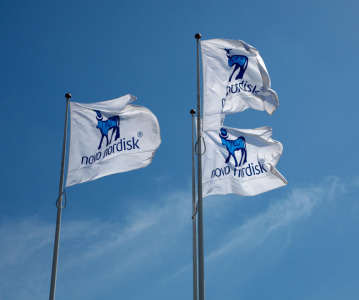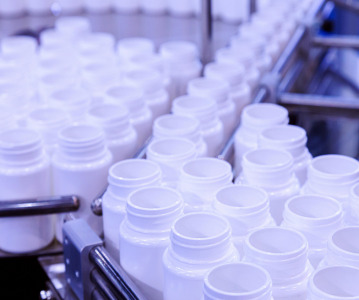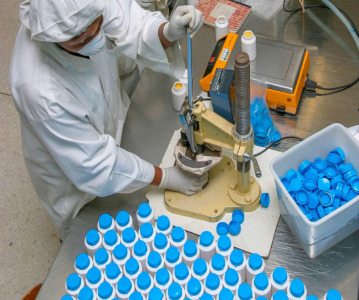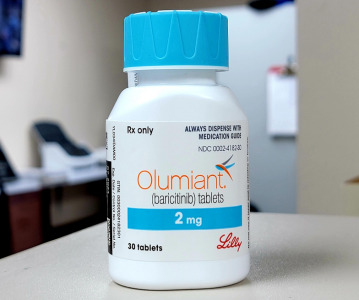Poor aggregation will see ADC targets fail or face long delays
.jpg)
Experts at ADC Bio warn of impending problems in the ADC pipeline with millions wasted in development costs.
ADC Biotechnology (ADC Bio)‘s leading experts warn that best-in-class antibody drug conjugates (ADCs) are being overlooked due to critical aggregation control problems. CDMOs are unable to develop products which are capable of working successfully in clinical testing or which are economically viable. The warning comes as more and more full-service CDMOs are investing in conjugation and ADC facilities.
“There is a major challenge in the ADC pipeline that conventional manufacturers have not addressed and which pharma companies are obliged to work around. The ultimate problem is that you have a candidate that may look promising but in practice it can’t be commercialised – unless aggregation control systems are put in place,” commented Charlie Johnson, CEO at ADC Bio.
He added: “We are seeing a great deal of excitement from pharma companies seeking to invest in ADC therapeutics. But applying conventional manufacturing techniques will see the drugs fail or endure very long periods in development. From the vendor side, there is considerable investment across the industry in facilities – but that alone will not give you the capabilities to commercialise optimal ADC therapeutics and that is ultimately a failure to patients desperately in need of new life-saving therapies.”
This is especially the case with best-in-class ADCs – predominantly incorporating PBD or duocarmycin payloads. These ADCs are hugely problematic to develop, primarily because these payloads are very hydrophobic and despite only comprising 2% of the ADC, they dramatically affect the propensity to aggregate. Consequently, effective aggregation control solutions are now critical – without which such ADCs can’t be manufactured.
Control of aggregation can be achieved by physically segregating antibodies from each other during the critical conjugation steps. ADC Bio has developed its proprietary “Lock-Release” technology over the last 6 years. The technology platform allows immobilisation of antibodies onto a solid-phase support, thereby segregating them and preventing aggregation during the critical conjugation steps. Following conjugation to payload, the ADCs are subsequently released into an optimal formulation containing stabilizing excipients that suppress aggregation.
The ADC pipeline faces a quality issue bottleneck which, if not addressed, will prevent drugs reaching the market. There is an urgent need to adopt techniques that prevent the formation of soluble high-molecular weight (HMG) aggregate in ADCs – thereby preventing severe adverse immune responses in patients that renders drugs unusable.
Turning to the early stages of ADC development, scientists require much greater certainty that read-outs from initial in vitro panels are accurate and reliably predicative of in vivo efficacy and safety. Consequently, technology is needed that guarantees that ADCs are free of residuals, in particular, free cytotoxic payloads and solvents – each of which affects negatively in vitro assays.
The only commercially available system that controls aggregation at source and that is scaleable and capable of meeting the regulatory requirements of GMP required to produce materials for use in human clinical trials is the company’s Lock-release platform – a fast, simple, cost-efficient and robust system that guarantees the consistent production of high quality, purified bulk drug substance.
“Effective aggregation control technologies are now essential and can be the difference between whether an ADC makes it to the market as a commercially viable product or fails. Indeed, much of our future customer base will come in as the industry realizes that not all CDMOs are equal and you require not just facilities, but also highly specialist technologies when it comes to aggregation control” commented Charlie Johnson, CEO of ADC Bio.
He added: “We’re coming to the ADC market from a completely different direction – we are not an all purpose CDMO. We realized that there was a problem and consequently developed a proprietary technology. As a result, we are expanding our facilities to meet ADC production demand.”
Lock-Release will ultimately provide better patient outcomes by allowing tumour-biology to select the best available payloads and ADC formats rather than allowing manufacturability to determine what products are possible. Manufacturers and innovators will be able to select the optimal ADC concepts that can be manufactured to a meaningful scale – making the best and most efficacious ADC products possible. It is a step change technology that is set to provide the market with the best process solutions.
Related News
-
News Women in Pharma: Moving beyond discussions and into best practice at CPHI Milan
In this second CPHI Milan special of our monthly series, we cover the key takeaways from the Diversity & Wellbeing track held on October 10, 2024. -
News AstraZeneca invests in AI collaboration for cancer drug trials
The British-Swedish pharmaceutical giant is partnering with biotechnology firm Immunai Inc to increase the efficiency of some cancer drug trials. -
News Ozempic and Wegovy prices questioned as Novo Nordisk faces US Senate hearing
The CEO of Novo Nordisk was grilled during a US Senate committee hearing on September 24, 2024, in which the exorbitant prices of the Danish company’s blockbuster drugs Ozempic and Wegovy were called into question. -
News The BIOSECURE Act: implications for the pharma supply chain
On September 9, 2024, the US House of Representatives voted to pass the bill titled the BIOSECURE Act (the Act), which lists several Chinese companies in the pharmaceutical supply chain. The Act will prohibit American companies from contracting or doin... -
News On Track at CPHI Milan: Thermo Fisher Scientific Track Sponsor interview
With CPHI Milan just around the corner, we sat down with some of the sponsors for this year’s conference tracks to discuss the most pressing topics in pharma. -
News CPHI Milan Speaker Spotlight: Pharma Manufacturing and Localisation in Africa
In the run-up to CPHI Milan, we sit down with some of the experts and thought-leaders speaking at this year’s conferences. -
News US BIOSECURE Act passed by US House of Representatives
The controversial act, which has already impacted several foreign companies operating in the US, was passed by the House of Representatives on September 9, 2024. It is now headed for the US Senate before it can be signed into law by President Joe Biden... -
News Eli Lilly licenses rheumatoid arthritis manufacturing in Africa
American pharmaceutical company Eli Lilly has signed a partnership with Egyptian organisation Eva Pharma to localise manufacturing of rheumatoid arthritis treatments in Africa.
Position your company at the heart of the global Pharma industry with a CPHI Online membership
-
Your products and solutions visible to thousands of visitors within the largest Pharma marketplace
-
Generate high-quality, engaged leads for your business, all year round
-
Promote your business as the industry’s thought-leader by hosting your reports, brochures and videos within your profile
-
Your company’s profile boosted at all participating CPHI events
-
An easy-to-use platform with a detailed dashboard showing your leads and performance

.png)





